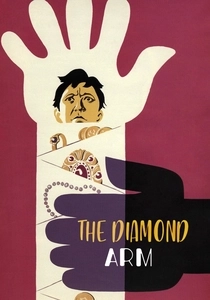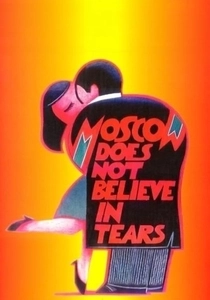Soviet cinema, often known for its political and social commentary, also explored themes of love and relationships in ways that were ahead of their time. This curated list of 10 Soviet films delves into the complexities of free love, showcasing how relationships were portrayed in a society where traditional norms were both challenged and upheld. These films provide a fascinating look at how love, freedom, and personal choice were depicted, offering viewers a rich tapestry of stories that resonate even today.

The Diamond Arm (1969)
Description: This comedy involves a man unwittingly involved in a smuggling operation, where his relationships with various characters reflect themes of trust and freedom in love.
Fact: It's one of the most popular Soviet comedies, often quoted and referenced in Russian culture.
 Watch Now
Watch Now 
The Irony of Fate, or Enjoy Your Bath! (1975)
Description: A New Year's Eve comedy where a man ends up in the wrong city, in an apartment identical to his own, and falls in love with the woman living there, showcasing the spontaneity and unpredictability of love.
Fact: This film has become a New Year's tradition in Russia, with millions watching it every year on December
 30 Days Free
30 Days Free 
Moscow Does Not Believe in Tears (1980)
Description: The story follows three women over three decades, highlighting their personal growth and the evolving nature of their relationships, reflecting changing attitudes towards love and independence.
Fact: It won the Academy Award for Best Foreign Language Film in 1981, making it one of the few Soviet films to receive this honor.
 30 Days Free
30 Days Free 
Autumn Marathon (1979)
Description: A professor juggles his academic life with two separate romantic relationships, exploring themes of commitment and freedom in love.
Fact: The film was directed by Georgy Danelia, known for his ability to blend humor with deep social commentary.
 30 Days Free
30 Days Free 
The Pokrovsky Gate (1982)
Description: This film humorously portrays the lives of residents in a Moscow communal apartment, where relationships are complex and often defy traditional norms.
Fact: The film was initially banned for its satirical take on Soviet life but was later released to great acclaim.
 30 Days Free
30 Days Free 
A Cruel Romance (1984)
Description: This film, based on Alexander Ostrovsky's play, explores the life of a wealthy woman who defies societal expectations by choosing her own path in love, reflecting the theme of free relationships.
Fact: The film was one of the highest-grossing Soviet films of the 1980s and was nominated for the Golden Prize at the 14th Moscow International Film Festival.
 30 Days Free
30 Days Free 
The Love of Mankind (1972)
Description: This film explores the lives of several characters whose relationships evolve in unexpected ways, reflecting on the freedom to choose love.
Fact: It was directed by Alexander Mitta, known for his ability to weave complex narratives.
 30 Days Free
30 Days Free 
The Garage (1979)
Description: While primarily a satire on Soviet bureaucracy, the film also subtly explores the personal relationships among the characters, including romantic entanglements.
Fact: The film was one of the first Soviet comedies to openly criticize the system, leading to its initial ban.
 30 Days Free
30 Days Free 
The Stationmaster (1972)
Description: Based on a story by Alexander Pushkin, it examines the life of a stationmaster whose daughter's romantic choices challenge societal norms.
Fact: The film was part of a series of adaptations of Pushkin's works, showcasing the timeless nature of his themes.
 30 Days Free
30 Days Free 
The Adventures of a Dentist (1965)
Description: A dentist's life is turned upside down by a series of comedic events, including romantic entanglements that challenge his views on love and relationships.
Fact: The film was one of the first Soviet comedies to explore the theme of personal freedom within the constraints of Soviet society.
 30 Days Free
30 Days Free 








